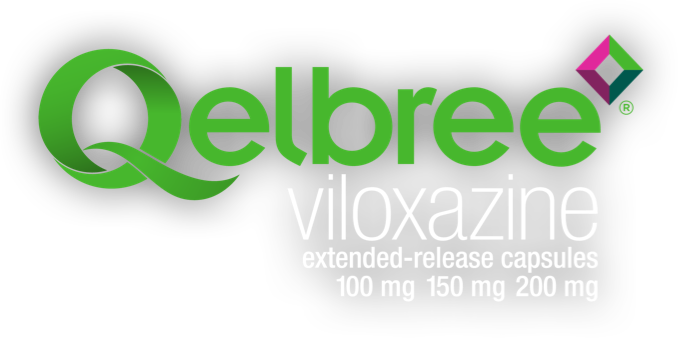
Your Child and ADHD
Helping your child navigate ADHD can be difficult, but with some helpful information, you can be better prepared to help them.
Talking to your child about ADHD
Your child may feel sad or angry about having ADHD. It is important to talk to them about their condition. Let them know that it is not their fault that they have ADHD.
Their condition does not define them. In the same way that another child might need eyeglasses to see, your child may need ADHD treatment to be their best self.
Discussing treatment and ongoing symptoms
It’s also important to discuss ADHD symptoms and treatments with your child. Be sure to ask them if their current treatment is helping or if they are experiencing side effects. Additionally, check in with your child to see what symptoms continue to affect them, even with their current treatment.
Drug holidays
Some parents may consider giving their child a “drug holiday”—or a planned break from ADHD treatment. Because this can worsen ADHD symptoms and have other negative effects, you should have a conversation with your child and their doctor before considering a break.

Your child’s feelings and reactions should be considered when making further decisions about ADHD treatment. Including them in the discussion can make them more comfortable with their treatment.

"Since I was diagnosed, I feel like I've been listened to"

Is it time to reconsider your child's ADHD treatment?
Treatment assessment
Consider the questions below to help you assess the effectiveness of your child’s current ADHD treatment.

Have your child’s ADHD symptoms been effectively managed in the last 6 months?

Has your child experienced negative side effects from their current ADHD medications?

Is it difficult to maintain a consistent treatment schedule with your child’s current ADHD medication?

Has your child ever abused, misused, or become dependent on their ADHD medication?
If your child continues to struggle with ADHD, talk to your doctor to see if Qelbree is right for your child.
Could non-stimulant Qelbree be the next move?
Most patients taking Qelbree were prescribed Qelbree because their previous ADHD treatment plan needed a change.

The attention to make studying
unstoppable
ADHD can affect boys and girls differently
ADHD is common among both boys and girls, but this condition is often undiagnosed in young girls. Boys’ symptoms of ADHD often fit the stereotypical ideas about ADHD, whereas girls’ symptoms are often overlooked.
It is important to know what these differences look like in order to better assess your child’s possible ADHD symptoms.
Boys are more likely to:
- Act out and be restless
- Blame external factors for their symptoms
- Suffer from hyperactivity and impulsivity
- Be diagnosed and receive treatment
Girls are more likely to:
- Daydream and underachieve
- Blame themselves for their symptoms
- Suffer from inattention
- Be undiagnosed
Identifying ADHD in girls
Girls and women with ADHD often go undiagnosed or are diagnosed later in adulthood. It’s important not to overlook the less-obvious ADHD symptoms in girls and to get them the help they need.
Talk to your doctor if you think your daughter might be exhibiting symptoms of ADHD.
ADHD and school
School can present many challenges for children and teens with ADHD—academically, socially, and, consequentially, how they view themselves.
Luckily, with the right awareness and symptom support, you can set up your child for success.
Signs of ADHD in students: what to look for
Grade school: Problems with paying attention and/or behaving in class can become more apparent (though, as mentioned above, young boys are often more likely to act out in class than girls)
- As more official grading systems are introduced, students with unmanaged ADHD may struggle to perform to their ability
High school: Teens with ADHD will often show less hyperactivity than in early school years, but may struggle more with inattention and impulsivity
- This can cause “high-achieving” ADHD students to suffer in silence with frequent procrastination, late study nights, and feeling overwhelmed while still getting good grades
- On the flip side, students with ADHD who aren’t performing to their ability may lean further into a “don’t care” mentality, and struggle to invest in their academics
Ways to support your child with ADHD in school
- Work with their teachers. It’s good to practice open communication with your child’s teacher, school nurse, or other staff about their symptoms and possible accommodations
- Ask about classroom accommodations. Speaking of accommodations, many can be made to assist a child with ADHD in the classroom. For example:
- A student with ADHD may benefit from sitting close to the teacher and away from doors and windows
- Talk to their teacher(s) about breaking down larger projects and deadlines into more digestible segments and check-ins
- Help them stay on top of medication. Build a sustainable medication routine and help them stick to it. Be sure to check in with them to see how they’re progressing, in case it’s time to reevaluate
- Consider behavior therapy. Studies show that including behavior therapy as part of your child’s ADHD treatment plan—in conjunction with medication—could have notable benefits
Introducing the All About ADHD newsletter
Get a deeper look at what the ADHD community is saying.
A change you can see
Qelbree is the first non-stimulant approved for ADHD in over a decade.









